Between The Nigerian Military, The Media and The People
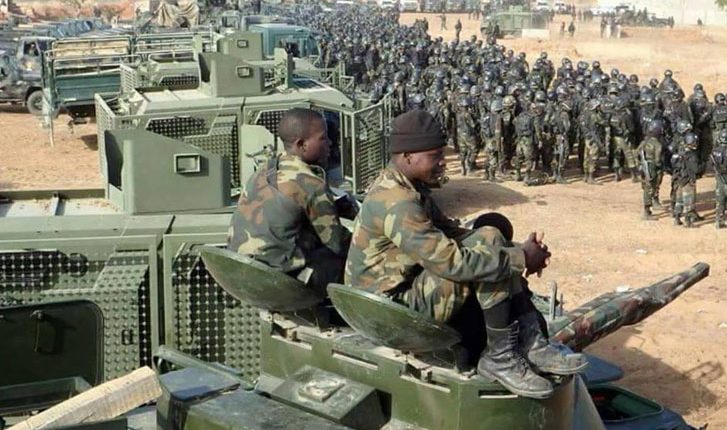
Nigerian Army (File)
By Fred Edoreh
The Nigerian Army Civil-Military Cooperation Media Chat for the first quarter of 2024 held on April 3 in Asaba, Delta State, was an inspiring experience.
The theme: “Imperatives of Military-Media Partnership for the Attainment of National Security,” was just apt, given the challenges of our present time.
The objective of the programme was succinctly underscored in the keynote and welcome addresses, respectively, by the Chief of Army Staff, Lt Gen Taoreed Lagbaja, represented by Major Gen Jamal Abdussalam, General Officer Commanding 6 Division of the Nigerian Army and Land Component Commander, Joint Task Force, South South, Delta Operation, and the Chief of Civil-Military Affairs, Major Gen Nosakhare Ugbo.
“In an era characterised by rapid information dissemination and evolving security threats, effective communication and transparency are essential for ensuring the safety and well being of citizens,” the CoAS pointed out.
The aim of the chat, therefore, was “to create a conducive environment for dialogue between the Nigerian Army and media practitioners, facilitating the exchange of valuable information and ideas for mutual benefit of all,” and especially “for the media to realize the need to uphold the highest standards of professionalism, accuracy, impartiality and patriotism by ensuring that their reports contribute positively to national security.”
Reinforcing the objective, Major Gen Ugbo noted that the role of the media in shaping public perception on Nigerian Army operations cannot be overstated and that the ability of the Nigerian Army to effectively communicate its missions and actions to the public is essential in garnering support and trust.
“The Media Chat offers a unique opportunity to bridge the gap between the military and media, to ensure that accurate and balanced information reaches the public, to dispel misinformation and rumours that can sow public distrust,” he said.
Dr Ifeanyi Osuoza, Delta State Commissioner for information, broke it down in his goodwill message: “Never has the military been tasked so much in Nigeria than now, to help ward off and put an end to the growing menace of militant, terrorist and kidnapping groups that have laid siege to nearly all parts of the country.
“The chat initiative is, therefore, an important public relations tool for nurturing positive relationships between the military and the civilian populace, to let the military high command understand how the mind of the people whose existence they are to protect works.
“While the people need the military to protect them against external aggression and to crush internal insurrection so as to be able to live in peace, the military needs the people to cooperate with it by ensuring that they conduct themselves in reasonable and orderly manner as well as make information available when they notice untoward situations that run contrary to peace and security of life and property. This is because the military-civil relationship is supposed to be symbiotic.”
The presentations by the Guest Speakers, mercurially brilliant Major Gen Olusegun Adeleke (rtd) who spoke on “Enhancing National Security through Military-Media Engagement,” and Prof Godwin Oboh, Head of Department of Mass Communication, Benson Idahosa University, Benin, who spoke on “Promoting Military-Media Trust for Enhancing Public Support Towards Addressing Nigeria Security Challenges,” made it all hugely insightful.
The atmosphere was especially given vent to by the Special Guest of Honour, Mallam Jibrin Baba Ndace, Director General of the Voice of Nigeria, who called on the military and media to be “frank and open-minded” in the discourse.
The key notes that informed the deliberation were National Security, Transparency and Objectivity in the Provision and Dissemination of Information, Balance, Patriotism, Public Perception and Trust.
Both speakers pointed out that the roles of the military and the media converge constitutionally in the promotion, protection and defence of the people, howbeit that they operate from different turfs.
By virtue of Section 217 of the Constitution, the military is tasked to defend Nigeria from external aggression; maintain its territorial integrity and secure it’s borders from violation on land, sea and air; suppress insurrection; act in aid of civil authorities to restore order; and perform such other functions as may be prescribed by an act of the National Assembly, one of which is the protection of national assets.
On the other hand, Section 22 of the Constitution requires the media to “at all times be free to uphold the fundamental objectives and directive principles of state policy as enshrined in Chapter 2 of the Constitution, and uphold the responsibility and accountability of the government to the people.”
The fundamental objectives are largely people-centric, mostly bordering on the indivisibility and indissolability of the nation, and anchored on the principles of freedom, equality, justice and a wide range of socio-economic rights which reinforce human dignity and development.
These presuppose that while the military acts in patriotic zeal to ensure both external security and internal order, the media also acts in the same zeal to ensure that state actors conform with the directive principles of state policy that underpin the rights and dignity of citizens.
The delicate line between both mandates sometimes makes it a difficult relationship, yet, both are constituted to achieve the purpose of common good.
On the defence of the nation against external aggression, the Nigerian military has performed excellently well through the years. Also, no matter what faults may have been perceived in their operations, it is frightening to imagine how the nation and the citizenry would have fared with Boko Haram without the continued efforts of the military to combat them.
But, perhaps, the biggest challenge of the Nigerian military is that, by virtue of the requirement to act in aid of civil authorities to restore social order, the Nigerian state has, due to bad governance, exposed it too much, sometimes unnecessarily, in the civil space.
For instance, some persons have argued that the declaration of Shari’a in many states of Northern Nigeria wetted the ground for the emergence of Boko Haram insurgence, as Fundamentalist Muslims saw it as an open invitation.
Even while trying to nip its emergence in the bud, there was no sense of consensus across various segments of national political leadership, given the cacophony of discordance on whether to criminalise them or not.
The consequence was that Fundamentalism gained ground and converted many of our citizens. It was such that even when the military got in to fight them out, we heard various tales of collusion, sabotage and security breaches on the part of citizens and state actors.
Worse was, in contravention of Section 217 (2) which requires the state “to equip and maintain the military adequately,” it seemed on various occasions and situations that they were not adequately provided for.
This appeared to have been confirmed by the purported move of President Goodluck Jonathan to source arms through a South African black market route which was thwarted, and the importation of mercenary fighters.
Matters were made worse by the curious consideration of the United States and other European nations to block arms sales to Nigeria, and the suspicion of collusion of state actors in the kidnap of Chibok girls.
In all these vagaries, the military still had to be in the trenches against the insurgents.
The failure of governance also accounts for the menace of criminal herdsmen and banditry which the military also has to engage.
The issue, ordinarily, was simple. It was about how to herd cattle for the provision of protein to the nation. There used to be routes for open and nomadic grazing but with increasing urbanization, the routes began to shrink while, in the face of climate change, the herders also became more desperate in seeking pastures for their stock.
Such a mere agricultural problem only needed informed, new strategic and modern day solutions, but it was mishandled by the state to snowball into regional, ethnic, communal, religious and political conflicts with attendant national security implications which spiralled into social disorder across the nation.
Against present day reality, some argued that the grazing routes should be restored. Others suggested non-nomadic cattle ranching with strategic migration to animal feeds system. Some insisted on RUGA, in which states would be compelled to provide lands for the herders. Some states argued that they do not have such lands or cannot provide them for free, being that other businesses do not also get free lands. Some states enacted anti-open grazing laws. Other actors opposed the legislation. The situation became lawless, such that parts of North Central, South East, South West and South South became theatres of open war between herders and indigenous communities.
Again, the military had to be involved in the various flash points of the ensuing conflicts, and with that came allegations that some of the herdsmen are armed by the military and that elements of the military support them in reprisal attacks against host communities, leading also to the erosion of trust and confidence in them.
In the same vein, while it is understandable for the military to protect national economic assets, the management of relations between the state and asset bearing or holding communities also created more burden for the military.
The situation in the Niger Delta is a classical case. The area produces the oil that has sustained and continues to sustain the national economy, yet it suffers huge underdevelopment in social, economic and physical infrastructure, leading to dissatisfaction, anger and agitation by the people.
A simple sense of strategic relations for sustainable economic management only required the state to sincerely and dedicatedly pursue the development of the areas as reward for the people.
Not minding the establishment of OMPADEC, NDDC, Ministry of Niger Delta Affairs and 13 per cent derivation, that has not been considerably achieved. The people still remain in squalor and, in desperation for economic survival, we have seen the youths take to militancy and sabotage of oil installations, oil theft for bunkering and illegal refining, and in some cases, outright kidnapping.
Again, the military is called in, by way of Joint Task Force which in the perception of some of the people merely represents the application of force to sustain the continuous exploitation and production of oil, the proceed of which they also feel is not fairly and sufficiently applied for their development.
Consequently, some of the youths tend to resent the oil companies, the military and their presence in the region.
Yet, how possible and reasonable can it be for the state to leave criminals at liberty to perpetuate all those manners of infractions around national assets?
One can only imagine how chaotic the criminalities would have evolved to the detriment, indeed economic collapse of the nation, had the military not been on ground.
Yet, there are also perceptions that some of the military elements compromise their sense of mission to get involved in the illegalities.
We can make the same case for the disorder in the solid mineral resource zones up North, where illegal miners are suspected to be partnering with bandits to reign terror on communities, while they rob the state and the people of the resources.
Again, that has taken the military to the new theatres, to the point that it is suggested that they sometimes need to escort farmers to the farms.
How did we arrive at allowing our solid minerals belt, which is supposed to constitute national economic assets, to degenerate into such disorder, just for us to always throw in the military?
There is a litany of social dysfunctions to which the Nigerian military has been over-stretched to restore order, acting in aid of state authorities who, sadly, are responsible for and seem to continue to perpetuate the social failures.
It is from these plethora of interventions that emerge several questions of justification of missions, sincerity of purpose and adherence to rules of engagement, from which the people misconstrue the intentions of the military and develop negative perception about it.
It must also be said that the military incursion into political governance has left it with the collateral damage of negative perception.
We cannot dismiss the public impression of the military about corruption. If nothing else, the yearly revelations about humongous Abacha Loot and the affluence seemingly displayed by some retired military officers make the people curious.
There was the report of Alex Badeh, alleged to have diverted about $20 million meant for the procurement of weapons in the fight against Boko Haram and in which $1 million cash was purportedly found in one of his mansions. He was on trial before he was killed and the truth of the matter buried with him.
Recently, the Chief of Naval Staff, Air Vice Marshal Emmanuel Ogalla, was also accused of abetting oil bunkering by freeing and having Naval patrol escort illegal bunkering ships, which the Minister of Defence has said would be investigated.
In the case of Lt Gen Tukur Buratai, while the Army authority reportedly cleared the air that the two Dubai properties traced to him were purchased from his savings, the Punch Newspapers in one of its editorials raised the question of “how a serving public officer can have the financial means to acquire assets worth $1.5 million.”
Incidentally, while the poser seems not to have been sufficiently answered, there was also a report that the ICPC claimed to have found about N1.8 billion cash in different currencies in a property linked to him. This also has gone silent.
The problem is when these allegations are not treated to logical conclusions, to ascertain the innocence or guilt of the suspicions, they accumulate to continuously agitate the minds of the people, and with attendant negative perception.
This becomes crucial with sounds and images which tend to suggest poor equipment and welfare of the military personnel occasionally emerging from the fighting theatres.
It is even more so as the public does not seem to be sufficiently aware that the military steadily carries out court marshals to bring its erring officers and men to book – some reprimanded, some de-ranked, some summarily dismissed, some jailed and even some executed. It is especially as most Court Marshals are in secret.
Thus, in the course of challenging the government on its responsibility and accountability to the people, and sometimes also acting in sympathy of the military to put pressure on the state to better equip and maintain them, the media tends to be overly indulged in probing these curiosities and contradictions, but in the process, they inadvertently undermine the efforts and saving grace of the military in providing national security.
Therein is the challenge of purpose and balance for the media.
The fact remains that the military is our last bastion of defence and if the media continues to diminish its esteem, degrade its perception and erode public trust in and cooperation with it, we weaken the morale of the personnel and consequently embolden the terrorists and criminal elements to continuously threaten and breach our collective social and economic security.
Indeed, there are now too many security challenges across the nation. Some of these would only have required the attention of the police but, it appears that, outside mere domestic and civil disputes, the people have given up on them on matters of serious unrest, for a myriad of reasons.
Clearly, we seem to be left with only the military to our rescue, painfully from the security disorders that we have inflicted on ourselves through poor policies, wrong political culture and bad governance.
In the circumstance, we need to protect, defend, encourage, promote and cooperate with our military, else we would be willfully exposing ourselves, our communities and our nation to graver danger.
The military is like the Super Eagles, the Super Falcons, D’Tigress, D’Tigers and all other national sports teams.
It is the Nigerian military, our military, our team. The men and women, officers and under ranks are our compatriots, brothers and sisters, fathers and mothers, uncles and aunties, friends and relations who have sworn themselves and their lives to the noble task of defending us and our nation.
They were our colours, fly our flag. They are humans, they can make mistakes, even miss penalties, but like we do with the Super Eagles, we ought always to continue to cheer them on to the last blast of the whistle and into the next game.
The difference is that, while sports is fun, win, lose or draw, military warfare is not like boxing. Losing is dying and those who commit themselves to it must only be continuously appreciated.
Even with all manners of perception and misperceptions, the public must realize that the military personnel at the combat theatres have nothing to do with the failures of the state. They just fight on on our behalf.
Yet, there is a need for the military to continuously build the confidence and trust of the people in them.
They understand that that is better achieved through a mutual military-media-people partnership, the reason why the Army is engaging the media and reinforcing its pledge to enhance more effective communication and transparent information sharing.
As Major Gen Ugbo put it, “I completely agree that there is need for the military to rebrand, but there is also a need for the media to rebrand,” all for the common good of national security and more peaceful socio-economic order.
However, while the military is already coordinating itself into the relationship, the question remains how the media can be collective in building the same needed consensus in the interest of national security.
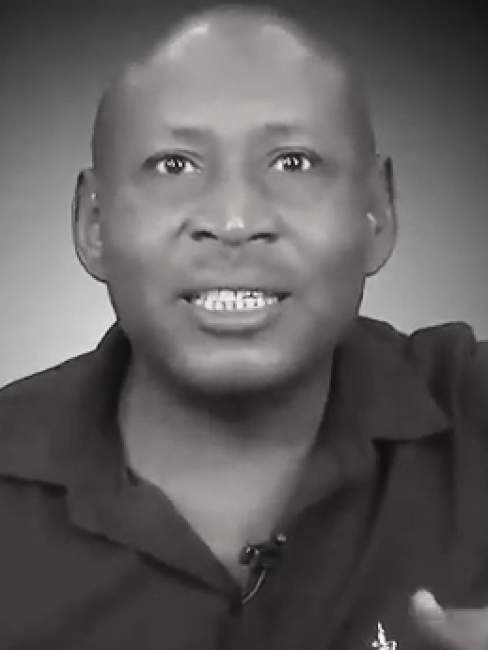


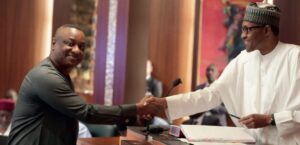
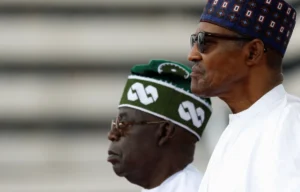
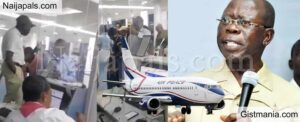

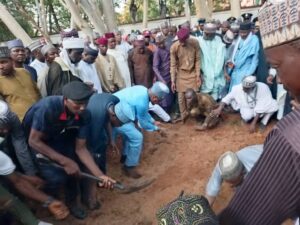
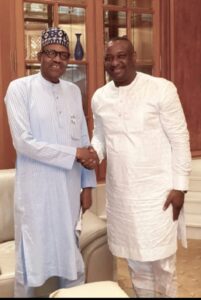
1 thought on “Between The Nigerian Military, The Media and The People”